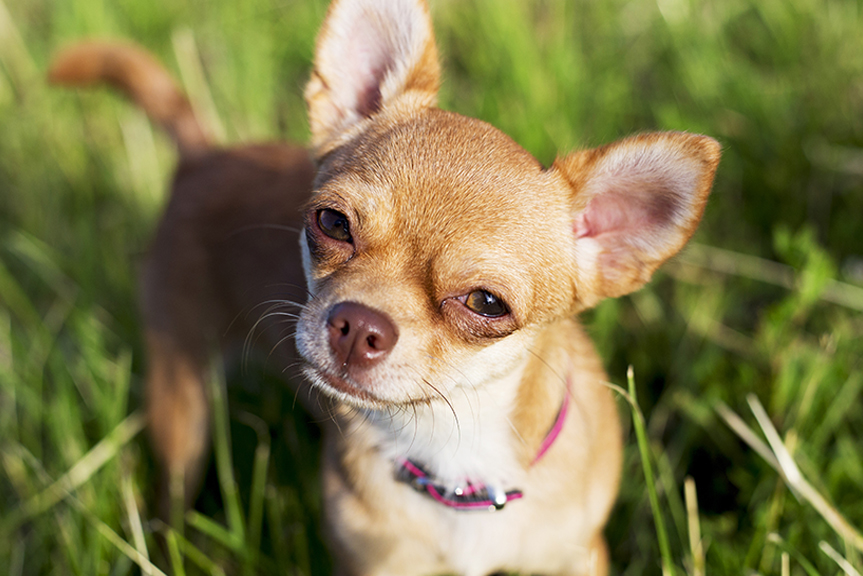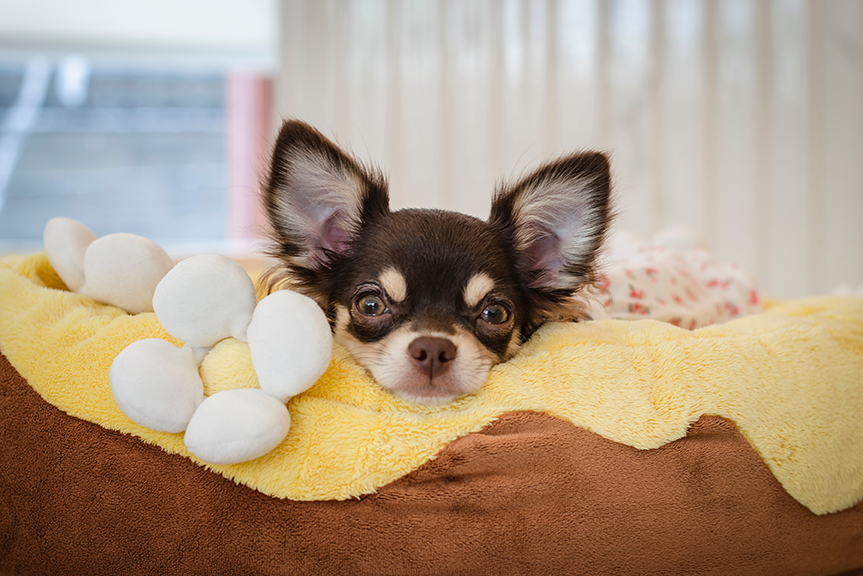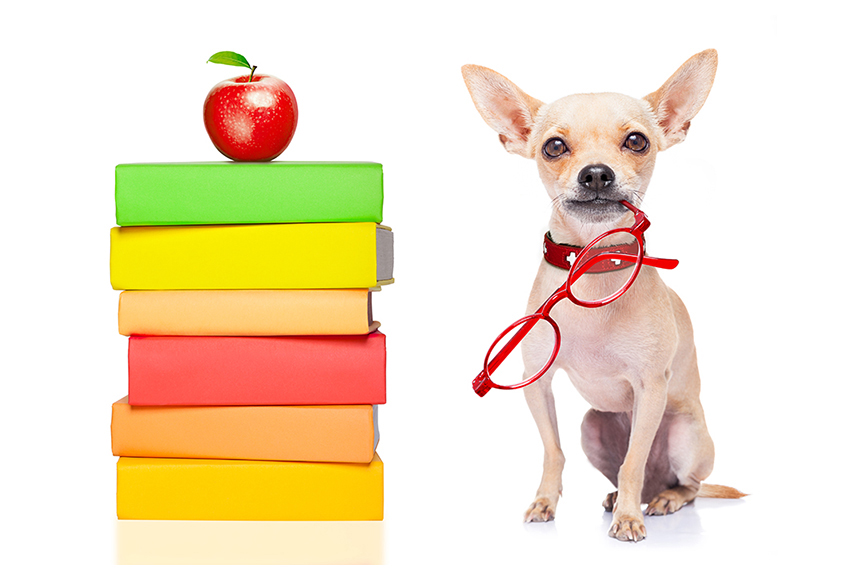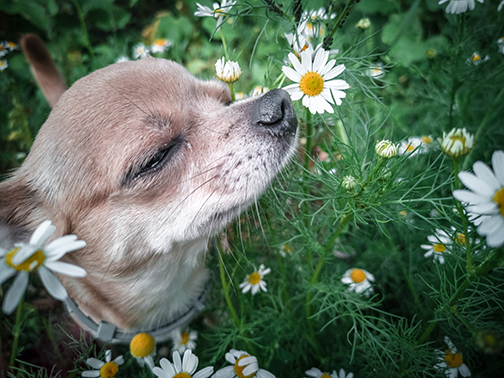Chihuahua Adult Wellness
Ensuring a Healthy Chihuahua
Chihuahuas are incredibly lucky in that they are a popular breed as well as an extremely healthy breed. This is not always the case with other popular breeds.
Chihuahuas can get sick of course and do incur some illnesses that in other breeds would not be a big deal but can be a major hurdle in these little pups. It’s our job as Chihuahuas lovers and owners to keep a close eye on our Chi’s health, as well as educate ourselves to make informed and sometimes quick decisions regarding their health.
Knowing the difference between normal and abnormal can help identify a problem quickly before it becomes an issue.

These four signs can help monitor and detect when something is not right or even slightly off.
1. Gum Color, looking
at your pup’s gum color is so easy to do and something your vet will do first during
your Chi’s exam. Normal gum color is a deep pink, while pale pink can indicate
poor circulation or anemia. White or noticeably light pink color can reflect shock,
severe anemia or very poor circulation. A blue hue or Tongue color gums can indicate
life threatening lack of oxygen, bright re gum color can be carbon monoxide poisoning.
small red splotches can indicate blood clotting issues. A red line along the
gum line should not be confused with any of the above indications or ass
healthy gums. A red line along the gum line would normally indicate dirty teeth and/or
gum disease. Another technique to determine blood circulation is to press and
lift your finger on your pup’s gum; you should see white for a moment and then the
gum will return to pink within seconds. It takes more than a few seconds that will
indicate poor circulation.
2. Body Temperature is a good indicator that your pup can not be feeling well as in humans. Normal temperature will be lower in the morning and higher in the evening. A Chihuahuas’ normal temperature to 101 °F to 102°F. Anything above or below that range call your vet immediately. The easiest way to check your Chihuahua’s
3. Pulse The easiest way to check your Chihuahua’s pulse is through the femoral artery. You can do this by cupping your hand around the top of your pup’s thigh while she is standing and feel on the inner leg where the thigh meets the torso. The pulse is 70-120 beats per minute. You can feel your Chi’s heartbeat by placing your hand over her lower rib cage behind the elbow. Don’t freak out if her heartbeat seems irregular as that is the case with many dogs compared to humans as stated by many vets.
4. Hydration Checking that your Chihuahua is fully hydrated is as easy as picking up the skin on the back just above the shoulders. The skin should immediately pop back in place. If the skin remains separated from the body, your pup is dehydrated. Give your dog some water immediately or call, your vet if your pup is not eating or drinking.
Keeping up Appearances and Care
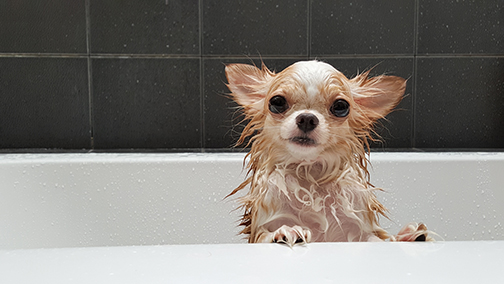
Regular Grooming for a Happy Chihuahua
Keeping your Chihuahua well-groomed is a fun bonding experience that you both can enjoy. It is also important for her good health. From brushing her silky hair whether smooth or long coated to taking care of her ears, eyes, teeth and nails which are all essential to keep her well groomed and happy as well as to aid and prevent serious health problems.
Read more on grooming essentials for your Chihuahua.

A Chihuahua’s coat is pretty much low maintenance. Giving your pup a light daily brush will keep her coat healthy and shiny. This will also give you a chance to identify any skin issues.
Skin problems can be uncomfortable for your Chi and can lead to hair loss. Skin issues can be caused by parasites, allergies (including food allergies), bacteria, fungi, endocrine disorders, and many other issues, so be sure to examine your pup’s skin regularly and contact your vet for abnormalities.
Learn more on how to keep your Chi's skin and coat healthy.
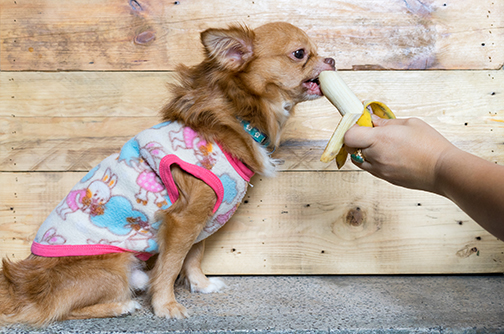
Adult Nutritional Needs
You may have an initial need to just count calories for your Adult Chi to ensure she does not gain weight. It’s much more important to focus on feeding your Chihuahua the best possible food to make every calorie count.
Your Chi will need a healthy balance of Proteins, Carbohydrates, Healthy Fats and Vitamins and Minerals to keep their mind and body functioning at optimal levels. Learn more on your Chi's nutritional and feeding requirements.
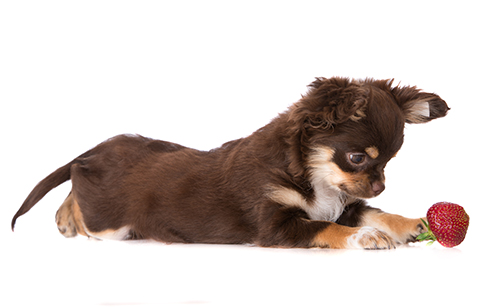
Preventative Medicine for a Healthy Chihuahua
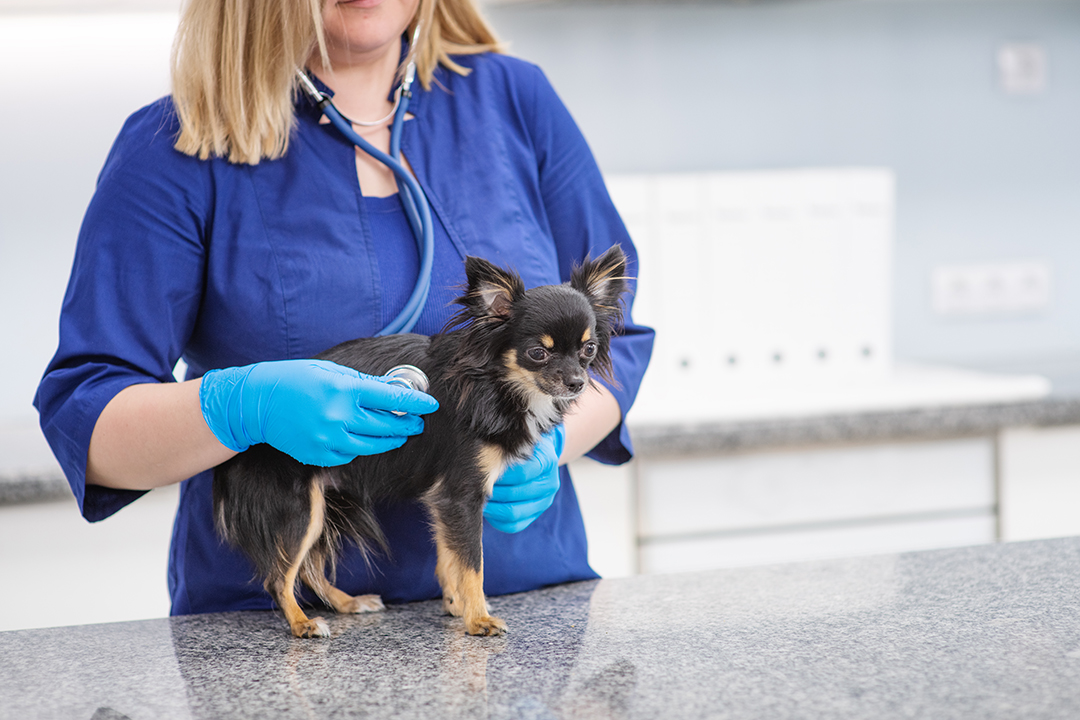
Preventative medicine for your Chihuahua is so important to maintain her overall good health. Educate yourself on how to take good care of your Chihuahua, including how to identify issues, making time for a five minute weekly checkup at home with your Chi, and make sure you schedule daily exercise and quality time with your Chihuahua. Read more on how to extend your Chihuahua's life with preventative medicine and weekly check-ups you can administer.
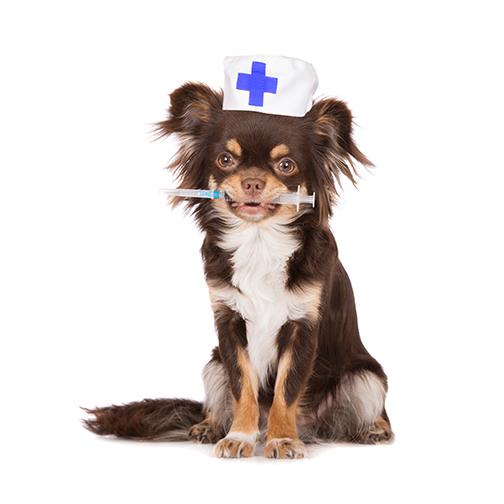
Identifying Signs of Sickness
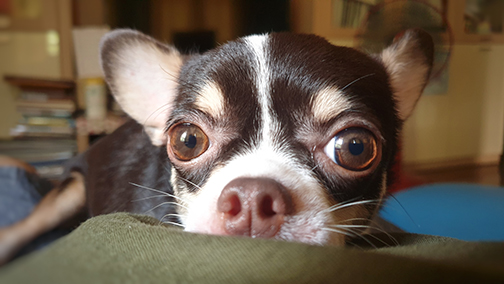
Behavioral changes in your normally active Chihuahua are good identifiers that something is wrong. Your Chi may have slowed down for no reason or is exhibiting lethargic behavior, which is the most common sign of disease.
Some causes for this behavior can include infection, check your Chi for a fever; anemia, check gum color; circulatory issue, check gum color and pulse; pain, check limbs, neck, back for discomfort, check mouth, ears and eyes for pain, check your Chi’s stomach or if she is standing in a hunched position; sudden loss of vision; poisoning, check gum color, pupils and reactions which should be small in bright light, vomiting and stomach pain is also a sign of poisoning; cancer; metabolic disease; and hypoglycemia behavior may be circling, pacing, orientation, disorientation, off balance, hiding, tremors, seizures, lack of bowel or urine control or major changes in appetite are usually signs of a physical problem. If you Chihuahua is experiencing any of the issues, see your vet right away.
Safety and First Aid
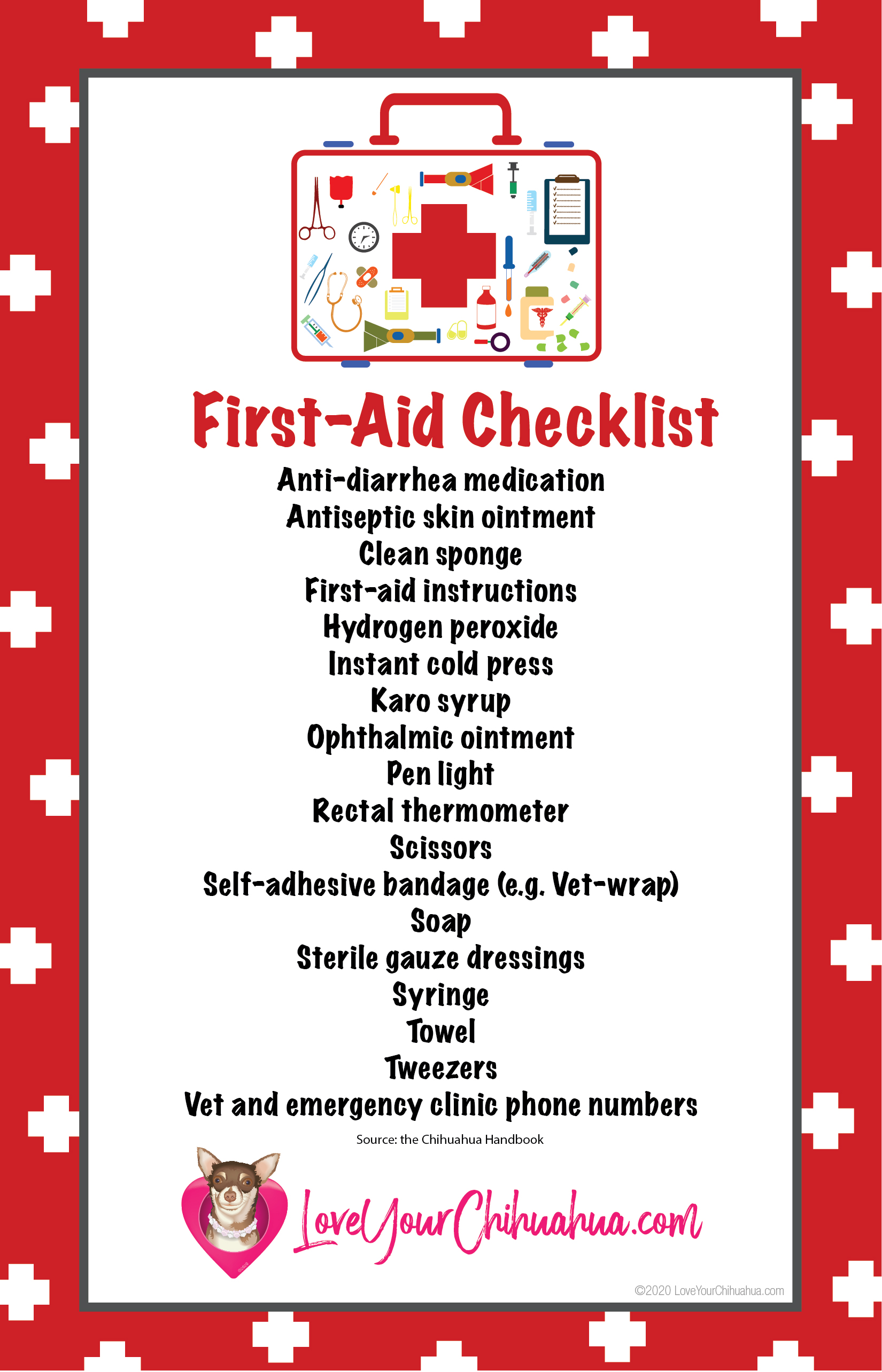
Chihuahua Health Challenges
No breed is perfect, although Chihuahuas come pretty close! Like other breeds, Chihuahuas have health concerns specific to their breed. In comparison to other breeds though, Chihuahuas have a lot less health conditions to worry about, some of which are hereditary.
Chihuahua Dog Care
Quick Links for the main topics you will find on Love Your Chihuahua
